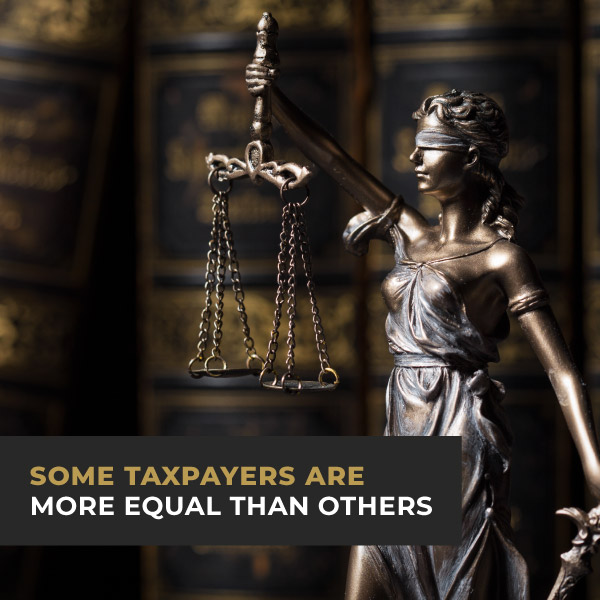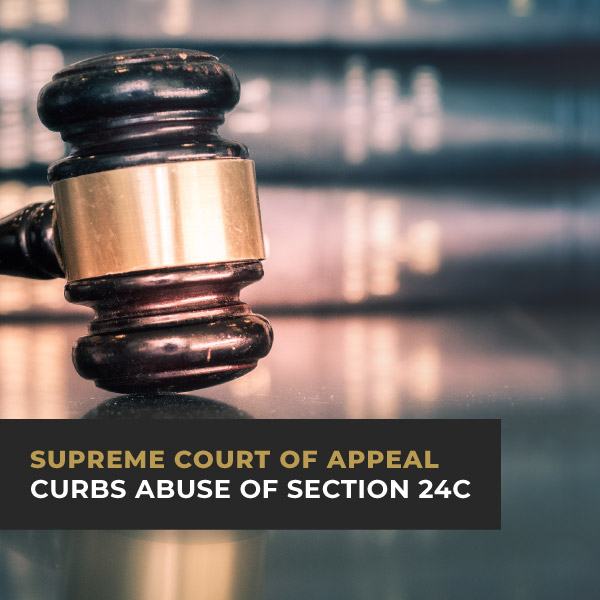SOME TAXPAYERS ARE MORE EQUAL THAN OTHERS
There is no shortage of reports in the public domain exposing high-profile individuals who are delinquent in their tax affairs, but it appears that SARS is not interested in bringing them to book.
The question is, does SARS’ leniency stretch to all quarters of the tax base or is it fair to say that the perception amongst the broader public is that ordinary taxpayers receive less favourable treatment? Cases such as The Commissioner for the South African Revenue Service v Rynette Pieters & and others (1026/17) (2018) ZASCA, do not do much to allay such convictions.
Issue in dispute
In this case the taxpayer was a company with some 700 employees that was wound up by court order. The key issue before the court was whether the liquidators were obligated to withhold employees’ (“PAYE”) tax from payments made to the company’s employees. which included salaries, leave and severance pay owing to them.
The liquidators, prior to confirming the final liquidation and distribution account (“L&D account”), paid these amounts in terms of section 98A of the Insolvency Act No. 24 of 1936 (“the Insolvency Act”). SARS lodged an objection to the confirmation of the L&D account, based on the liquidators’ failure to withhold PAYE.
SARS disagreed with the liquidators’ view that the payments made in terms of Section 98A are preferent awards under the Insolvency Act and thus not subject to PAYE. Unfortunately, the Master of the High Court sided with SARS and upheld the objection.
The liquidators successfully applied to the High Court to review and set aside the Master’s decision, which decision was taken on appeal by SARS.
The Supreme Court of Appeal (“SCA”) considered the purpose of Section 98A of the Insolvency Act and came to the compassionate conclusion that:
“…
[11] Reverting to s 98A – the provisions contained therein can rightly be described as having a social justice objective as they are clearly aimed at alleviating the plight of employees who are left unpaid by the financial woes of their liquidated employer company…
[12] … A close analysis of para 2(1) of the Schedule leads to the compelling conclusion that its provisions do not apply to s 98A payments…”
On this basis, the SCA found that there was no obligation on the liquidators to withhold PAYE on the payments made in terms of Section 98A of the Insolvency Act.
Analysis
It is important to note that the Insolvency Act’s objectives are among others, to ensure that there is a due distribution of assets among creditors in the order of their statutory preference as determined in the Insolvency Act. Thus, there is an obligation on the liquidators to adhere to these ranks of preference and the liquidator and/or the Master of the High Court is at no liberty to favour a creditor, including SARS, above another creditor in terms of the scheme of distribution.
If consideration is also given to severance benefits payable to employees due to retrenchment, it is worthy to note that employee is offered relief by means of applying for a tax directive, whereby the first R 500 000.00 paid by the employer is taxed at a rate of zero percent. Against this backdrop, it is peculiar why SARS would treat employees of a solvent company different from an insolvent company and differentiate between payments made by a liquidator and an employer. In both instances, the employee is left without a job and is required to face the financial hardship of unemployment.
In terms of the legal principles, the intrinsic takeaway from this judgment is, first, that where payments are made to an employee under Section 98A of the Insolvency Act, such employee is a preferent creditor that is ranked above SARS. The rationale for the favourable ranking is to ensure that the financial burden left on vulnerable employees by a stranded financially distressed company, is alleviated to some sense.
Public perception
Deviating from the legal principles, one may ask why SARS would take a matter such as this all the way to the SCA. It is important to note that the amounts paid under section 98A of the Insolvency Act are capped to a maximum of R12 000 in respect of unpaid salaries and wages, R12 000 for severance pay and R4 000 in respect of leave pay. These amounts are paltry, considering the fact that their recipient is left unemployed.
In this vein, the SCA questioned why there would be any premise to contend that such payments would be subject to PAYE, especially as section 98A is directed at providing relief to vulnerable, often blue-collar, workers.
The question becomes more pressing where one considers that SARS seems to leave low hanging fruit untouched. The revelations at the Mpati and the Zondo Commissions of Inquiry in particular have provided SARS with several slam-dunk cases, yet SARS seems indifferent.
Possibly, SARS is keeping their actions under wraps, but the aesthetics of cases such as these feed the narrative that SARS does not enforce and collect with impartiality.
![2025-logo-[Recovered] Tax Consulting South Africa](https://www.taxconsulting.co.za/wp-content/uploads/2025/01/2025-logo-Recovered.png)


